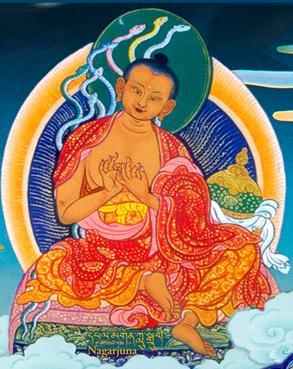
XV.1.
For, being produced through dependence on a cause, a self-existent thing would be “something which is produced” (krtaka).
XV.2.
Certainly, a self-existent thing by definition is “not-produced” and is independent of anything else.
XV.3.
Certainly the self-existence of an other-existent thing is called ”other-existence.”
XV.4.
If either self-existence or other existence exist, then an existing thing, indeed, would be proved.
XV.5.
Since people call the other-existence of an existent thing a “non-existent thing.”
XV.6.
Do not perceive the true nature of the Buddha’s teaching.
XV.7.
By the Glorious One, who has ascertained the meaning of “existent” and non-existent.”
XV.8.
Certainly an existent thing different from its own nature would never obtain.
XV.9.
If there is no basic self-nature (prakti), of what will there be “otherness”?
Nargarjuna answers:
If there is basic self-nature, of what will there be “otherness”?
XV.10.
Therefore, one who is wise does not have recourse to “being” or “non-being.”
XV.11.
If it is maintained: “That which existed before does not exist now,” there annihilation would logically follow.
Source: Orientalia




